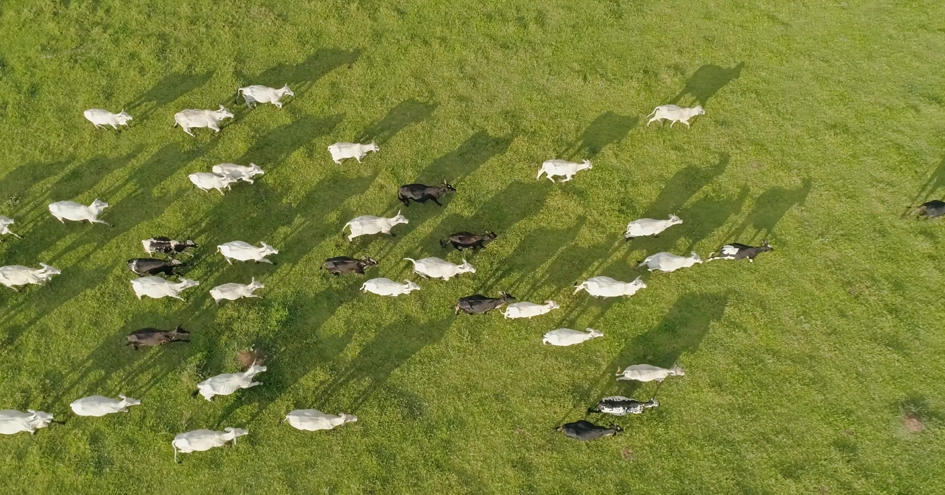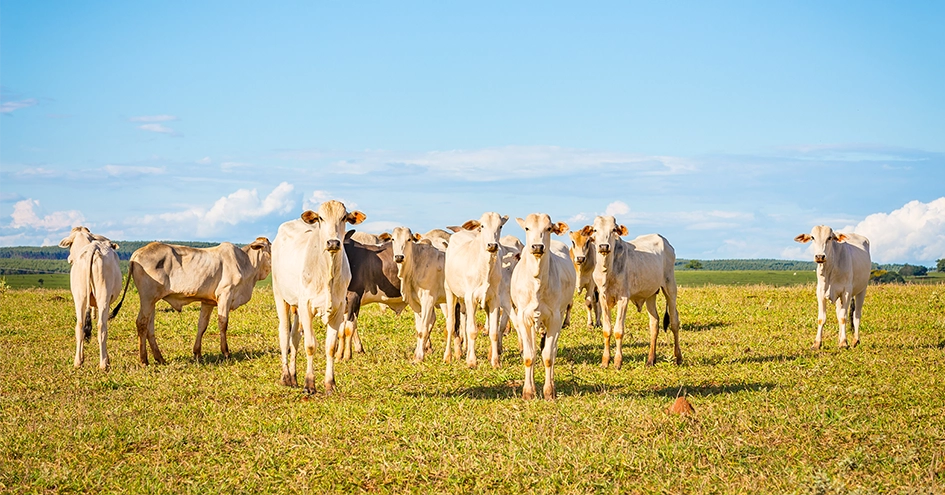Beef
Our Private Brand and perishable products containing beef are aligned with Element 1 of the FPCoA roadmap for this commodity.
Our commitment is to ensure that, by 2025, the beef present in our Private Brand and perishable products is not associated with either deforestation or the conversion of HCV ecosystems. We have set different cut-off dates in line with existing sectoral agreements, such as the cut-off dates for legal deforestation of Amazonian beef. For any region in Brazil, the cut-off date for illegal deforestation and conversion is no later than 1 August 2008; for zero deforestation and conversion the cut-off date is no later than 1 August 2020.

We aim to increase the traceability of beef in order to identify its origin and ensure that it is sustainable – especially in countries with a risk of deforestation. In these cases, we encourage our suppliers to adopt policies and commitments that are in line with the principles of the FPCoA, especially for the prevention of deforestation and the protection of ecosystems.
We are also committed to ensuring that 100% of the beef in our Private Brand and perishable products is traceable at least to the country of origin, and that whenever it comes from places where the risk is not negligible, traceability is ensured all the way back to the production farm.
Progress in 2024
The consumption of beef – including offal, leather and tallow – in 100% of our Private Brand and perishable assortment was 40,337 tonnes in 2024. As in the previous year, we managed to trace and map 100% of the beef present in our Private Brand and perishable products back to at least the country of origin. This analysis made it possible to identify that approximately 0.4% of the meat used was sourced from Brazil, a country considered to be at deforestation and conversion risk associated with livestock production.

Although our exposure to this ingredient is very limited, we continue to actively participate in the FPCoA’s beef working group. We collaborate with suppliers and promote the sharing of information throughout the supply chain, especially between our direct suppliers and meatpackers located in countries with non-negligible risk, so that they can adopt more sustainable production practices.
According to the methodology, countries with negligible risk are considered to be free of deforestation and conversion of HCV ecosystems. We can then assume that 99.6% of our beef consumption is DCF, in line with 2023.
Engagement with suppliers and meatpackers
We have communicated our policies, commitments and progress in fighting deforestation, the conversion of ecosystems with HCV and the violation of human rights – in line with the FPCoA – to all beef suppliers, raising awareness so that they take on the same commitments in their operations.
This communication was reinforced with all beef suppliers from countries at risk (Brazil) and other South American origins (Argentina and Paraguay).
In 2024, we identified the no deforestation policies of our main suppliers and assessed whether they had mechanisms in place to control deforestation and conversion – including cut-off dates and adequate traceability systems for their direct and indirect suppliers.
We also mapped, down to the slaughterhouse level, all our consumption of this ingredient from Argentina and Paraguay. Suppliers and meatpackers of this commodity originating in Brazil were asked about the existence of a beef purchasing control system, as specified in the Monitoring Protocol for Cattle Suppliers in the Amazon and the Voluntary Monitoring Protocol for Cattle Suppliers in the Cerrado, and whether this extended to their indirect suppliers.
The main meatpackers responsible for our beef consumption were evaluated by CDP – Disclosure Insight Action (formerly Carbon Disclosure Project). In 2024, meatpackers rated A under the Forests programme accounted for 35% of our consumption. Those rated B made up 3%, while 58% were rated C. Only 4% were not assessed.
All meatpackers in our supply chain with operations in Brazil have been informed about the FPCoA beef roadmap and the Guidance for Forest Positive Suppliers of Cattle Derived Products.
In 2024, our direct suppliers were invited to two meetings about the EU Regulation on Deforestation-free Products (EUDR) where the problem of deforestation associated with this commodity was addressed.
In 2025, we will continue to work together with our beef suppliers from Brazil, aiming to strengthen synergies and promote communication between direct suppliers and meatpackers.
